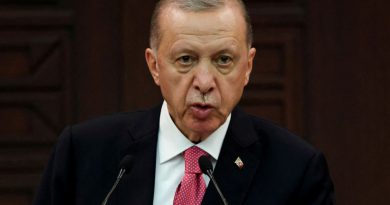Europe ‘must grit teeth’ on COVID-19 as vaccine euphoria fades
Paris (Reuters) – European officials warned against COVID-19 complacency on Thursday and said measures to control a surge in infections as winter approaches must continue despite hopes that new vaccines can bring the pandemic under control.
This week’s announcement by Pfizer Inc of a potentially effective vaccine spurred optimism that an end to months of crisis could be in sight, sending financial markets soaring and fuelling public longing for a nearly normal Christmas.
But health authorities and leaders across the region urged people to continue complying with lockdowns as it became clear that vaccines would not come soon enough for many COVID-19 sufferers and shrinking economies.
“It would be irresponsible to soften the lockdown now,” French Prime Minister Jean Castex told a news conference, warning that, despite signs of a slowdown in infections, gains were fragile. France has the highest number of cases in Europe.
“The pressure on our hospitals has intensified enormously,” Castex said, adding that lockdown measures imposed at the end of October would continue until at least Dec. 1.
Pfizer and its German partner BioNTech will only be able to produce enough vaccine this year to treat 25 million people, if approval is secured – not nearly enough to ease the winter strain on health systems.
In Italy, which reported 623 deaths on Wednesday and passed 1 million cases, and in Germany, which has also seen infections climb back to levels seen earlier in the crisis, officials said any return to normal would take time.
“We really must grit our teeth for a couple more months,” said Lothar Wieler, head of Germany’s Robert Koch Institute for infectious diseases.
The dire situation facing Italy, the country at the centre of the first wave of the pandemic, was underlined by a video on social media showing a corpse sprawled in a hospital lavatory, after the patient apparently died while waiting for a test.
Euphoria Fades
After achieving a degree of control over the pandemic with blanket lockdowns earlier in the year, governments across the region have now imposed new restrictions to try to curb a fresh surge in infections, but have yet to see improvements of the required scale.
“Infections went down fast last week, but we need to make more progress,” Ernst Kuipers, head of the Dutch national hospital association LNAZ, told reporters. “We keep stressing the importance of following the rules.”
As the euphoria that followed Pfizer’s announcement faded, European shares slipped back from their eight-month highs, with poor economic data from Britain adding to doubts about the rebound from the brutal slump caused by the first lockdowns.
Its economy lost steam in September, hardening expectations that it will shrink again as 2020 ends.
Britain passed 50,000 COVID-19 deaths this week, and the 33,470 new cases registered on Thursday were its highest daily tally to date.
“Dealers are starting to realise that, even though a drug has a very high success rate in late-stage trials, the process of obtaining approval and getting it rolled out could take a long time,” said David Madden, analyst at CMC Markets UK.
As the crisis has ground on and jobless numbers have risen, public support for countermeasures has fractured. There have been protests in several countries, and observance of bans on public gatherings or requirements to wear masks or avoid social contact can be patchy.
The head of the World Health Organization, Tedros Adhanom Ghebreyesus, said countries should not pin all their hopes on rapid vaccination.
“We may be tired of COVID-19 but it is not tired of us,” Tedros told the Paris Peace Forum, an annual event focused this year on fostering global cooperation to beat the pandemic.
“European countries are struggling, but the virus has not changed significantly, nor the measures to stop it.”



